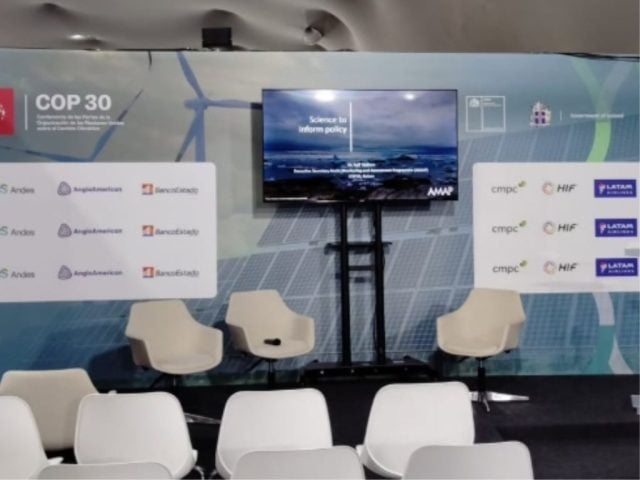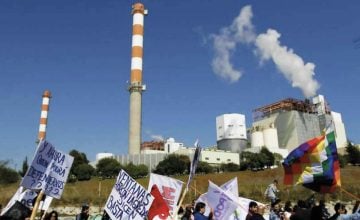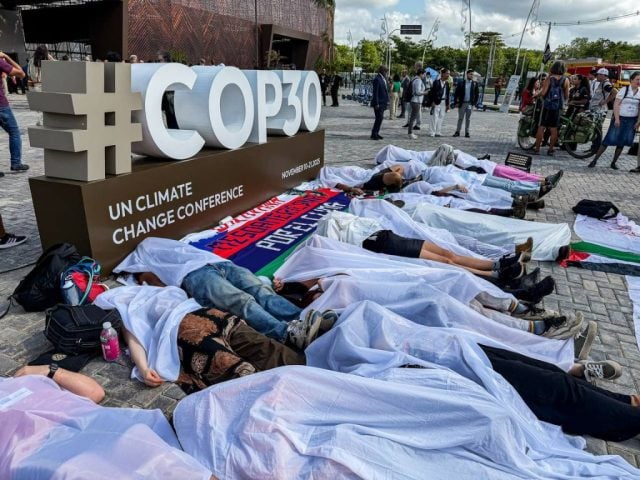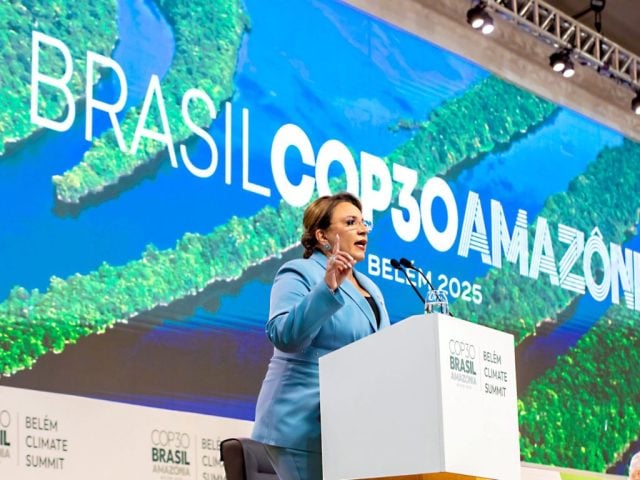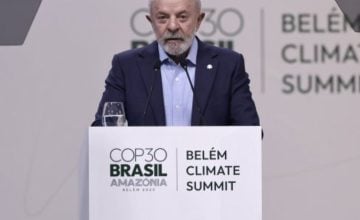Original article: Pabellón de Chile en COP30: Denuncian lavado de imagen corporativo y “captura” por CMPC, Latam, AngloAmerican, Teck y Aes Andes
Chile’s Pavilion at COP30 Faces Backlash Over Corporate Funding and Climate Policy ‘Capture’ by Companies
Amid the ongoing COP30 in Belém, Brazil, Chile’s official Pavilion is under intense scrutiny for its corporate financing. Lucio Cuenca, director of the Latin American Observatory of Environmental Conflicts (OLCA), has accused the Pavilion of being funded by national and multinational companies tied to socio-environmental conflicts, which he labels a clear case of «corporate image laundering» and the «capture» of climate policy by private interests.
In a statement shared on social media, Cuenca highlighted that the logos of sponsoring companies such as Latam Airlines, CMPC (Grupo Matte), HIF (synthetic fuels), AngloAmerican, Teck, Aes Andes, and BancoEstado prominently feature on the cover of the official program and the visuals inside the Chilean government’s conference room at COP30.
The involvement of these companies goes beyond mere financial support. The program also includes business organizations like Unidos por la Acción Climática, Natura, Danone, Minera Vale, Aguas Andinas, Forestal Arauco, the World Bank, and BNP Paribas. Moreover, the program lists the dismissed Minister of Energy, Diego Pardow, alongside representatives from various government ministries, public services, NGOs, and academia.
For a government that professes a commitment to climate action, this decision raises significant concerns. Cuenca argues that because the expenditure is not overly burdensome to the national budget, the choice seems more about «validating and legitimizing the involvement of these companies in shaping climate policy.» According to him, this represents a form of «capture and surrender of this policy to the private sector.»
«Image Laundering» and «Re-Victimization»
In Belém do Pará, Cuenca fiercely criticized during an interview with Radio y Diario Universidad de Chile.
«For us, this is a very bad signal. I believe this is the opportunity for Chile to show a commitment to the planet’s climate challenges in these international spaces, but also to distance itself from the main culprits of the climate situation we are currently experiencing,» he stressed.
According to the researcher, this amounts to re-victimizing «those who are currently suffering the impacts of these companies’ actions» and he questioned why the country would present to the world “a misguided political conviction.”
«This seems to us to be a very bad decision, a dreadful signal to the international community, as well as to those within Chile, that the physical space where various initiatives related to environmental policy and climate policies are showcased is, today, funded by and displaying the logos of these companies,» he stated.
According to the activist, such decisions legitimize «the same companies responsible for the ecological and climate crisis we are experiencing.»
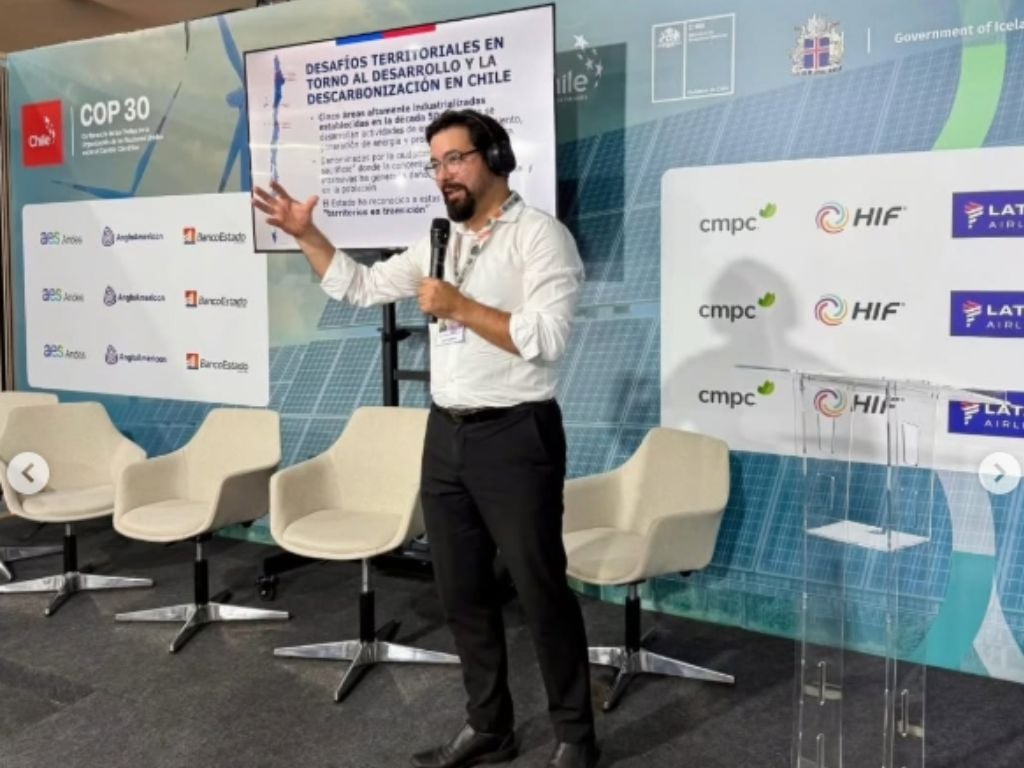
He also criticized that Chile’s stand sends a dangerous political signal where the government of President Gabriel Boric collaborates in the image laundering of companies that are questioned for their predatory effects on the environment and ecosystems.
«In some way, the government cooperates and becomes part of that image laundering of these companies, which have a long history of being predatory, violating human rights in their territories,» he remarked.
The activist warned that situations like this negatively impact «the chances of incorporating the views and participation of those suffering the consequences of the crisis we are experiencing» and emphasized that these national and multinational private companies linked to socio-environmental conflicts focus their interests on continuing to exploit nature to their advantage.
Cuenca denounced that «this happened last year at the COP 16 on Biodiversity, where we reported and investigated the associated amounts, and at that time the Ministry of Foreign Affairs through Chile Imagen gathered US$ 90,000, contributed by Latam and CMPC.»
The controversy also extends to civil society organizations that agree to participate in these spaces.
Cuenca questioned, «Why grant them legitimacy and image laundering? Are they re-victimizing the communities they claim to support?» This question directly challenges the consistency of those participating in a space funded by companies they themselves denounce as predators and even confront in legal actions defending communities.
Contradiction in the Green Transition
Along with questioning the pavilion’s funding, Cuenca lamented the contradictory signal in the country’s effort to transform into a climate leader in the region.
While the government narrative has focused on its commitment to the Paris Agreement and a sustainable energy transition, the environmental activist noted that Chile appears to be undergoing a «regression in environmental governance,» pointing to legal modifications that «increase vulnerability in the rights of communities and facilitate the expansion of extractivism.»
«Decisions are being made to deepen extractive activities. We already know that these have high impacts in Chile, such as in mining, the expansion of lithium and copper exploitation, and the massive investment in the energy sector to produce green hydrogen, which will be exported but has nothing to do with the energy transition Chile needs to undertake,» Cuenca warned during an interview with Radio y Diario Universidad de Chile.
In his view, the message being sent is that of a «corporate transition,» where the state aligns with the logic of the global market over the socio-environmental needs of the country, and the decisions made represent «an utterly unjust transition» rather than one «defined by the peoples, addressing the needs related to climate and nature.»
Meanwhile, the Chilean government has presented the national pavilion as a 150 m² space designed to «enhance dialogue, coordination of public and private initiatives, and showcase Chile’s advancements in climate action.»
Deputy Foreign Minister Gloria de la Fuente defended the space, stating that «having a pavilion at COP30 allows us to strengthen ties with different actors promoting ideas and concrete actions to efficiently tackle the consequences of climate change.»
The Chilean pavilion aims to be a showcase for the country’s progress in renewable energy, green hydrogen, electric mobility, and adaptation to climate change, in line with the Nationally Determined Contributions (NDC) 2025-2035 and the National Strategy for a Just Socio-Ecological Transition presented by Chile at this COP30.
However, the disconnect between the official narrative and environmental activists’ criticisms, such as that from Lucio Cuenca, highlights the deep tension regarding who finances, defines, and controls climate policy in Chile, raising serious doubts about whether the ongoing energy transition aligns with corporate interests or meets the actual needs of communities and territories.
*Featured image: Lucio Cuenca.
